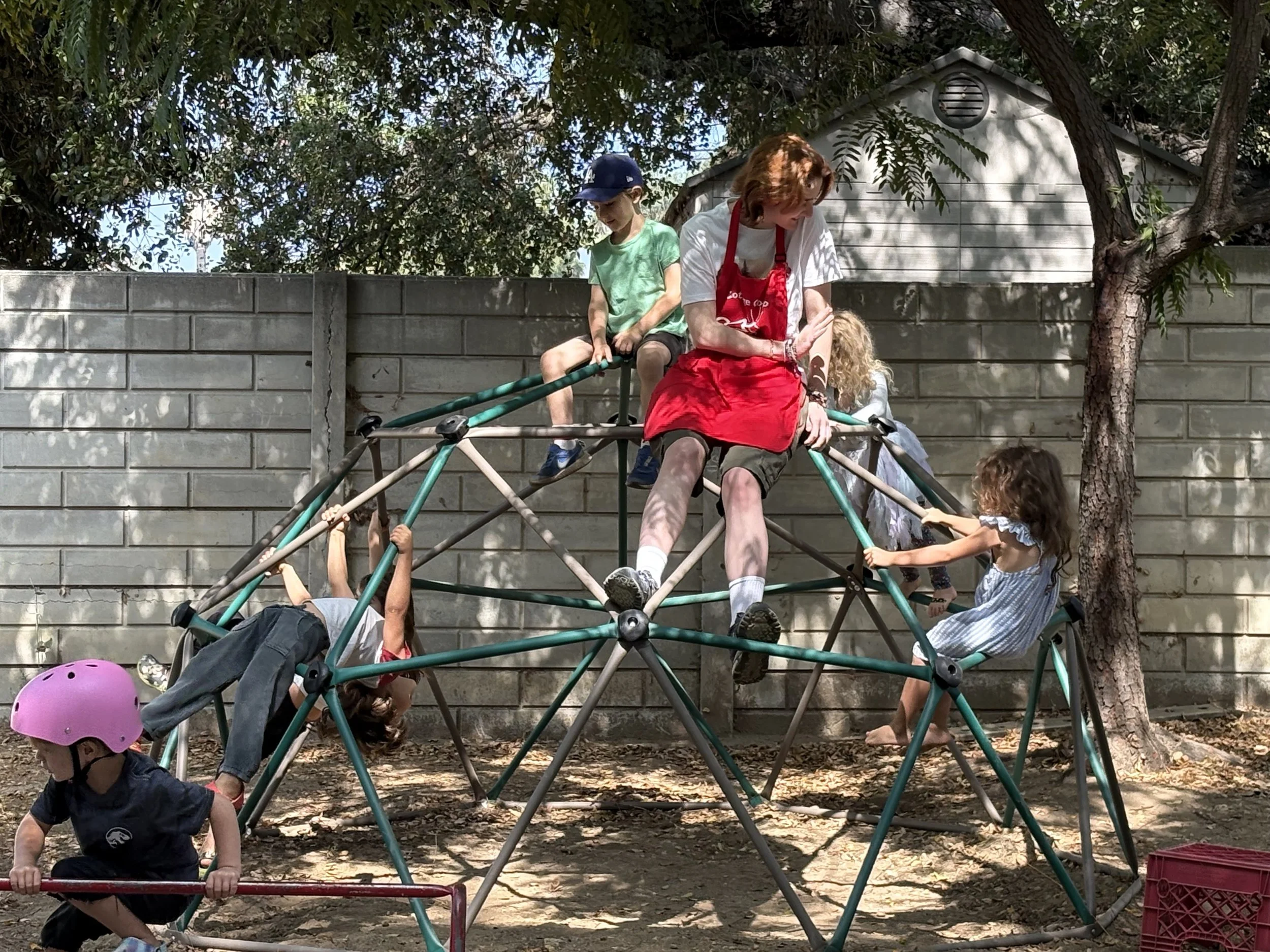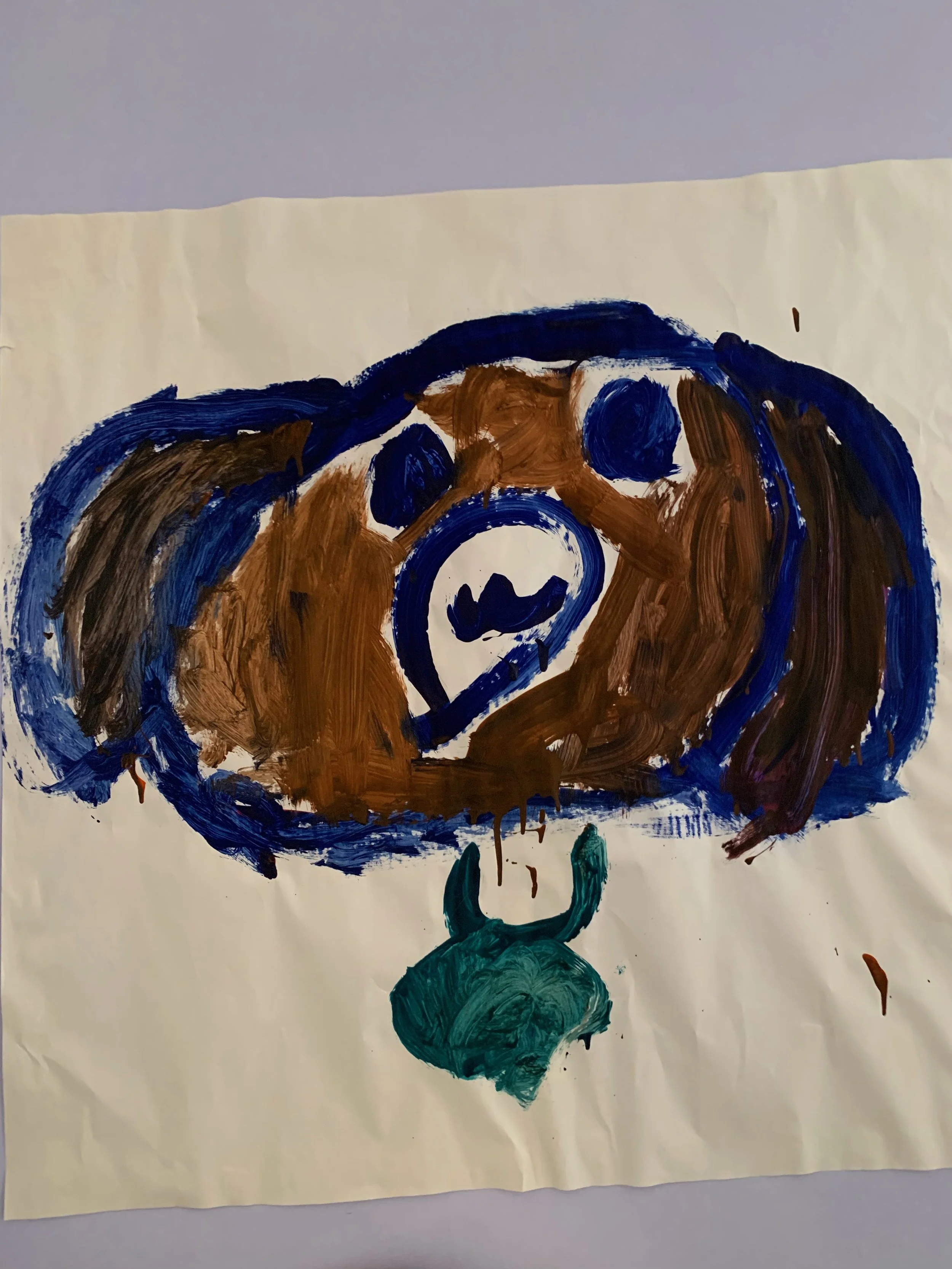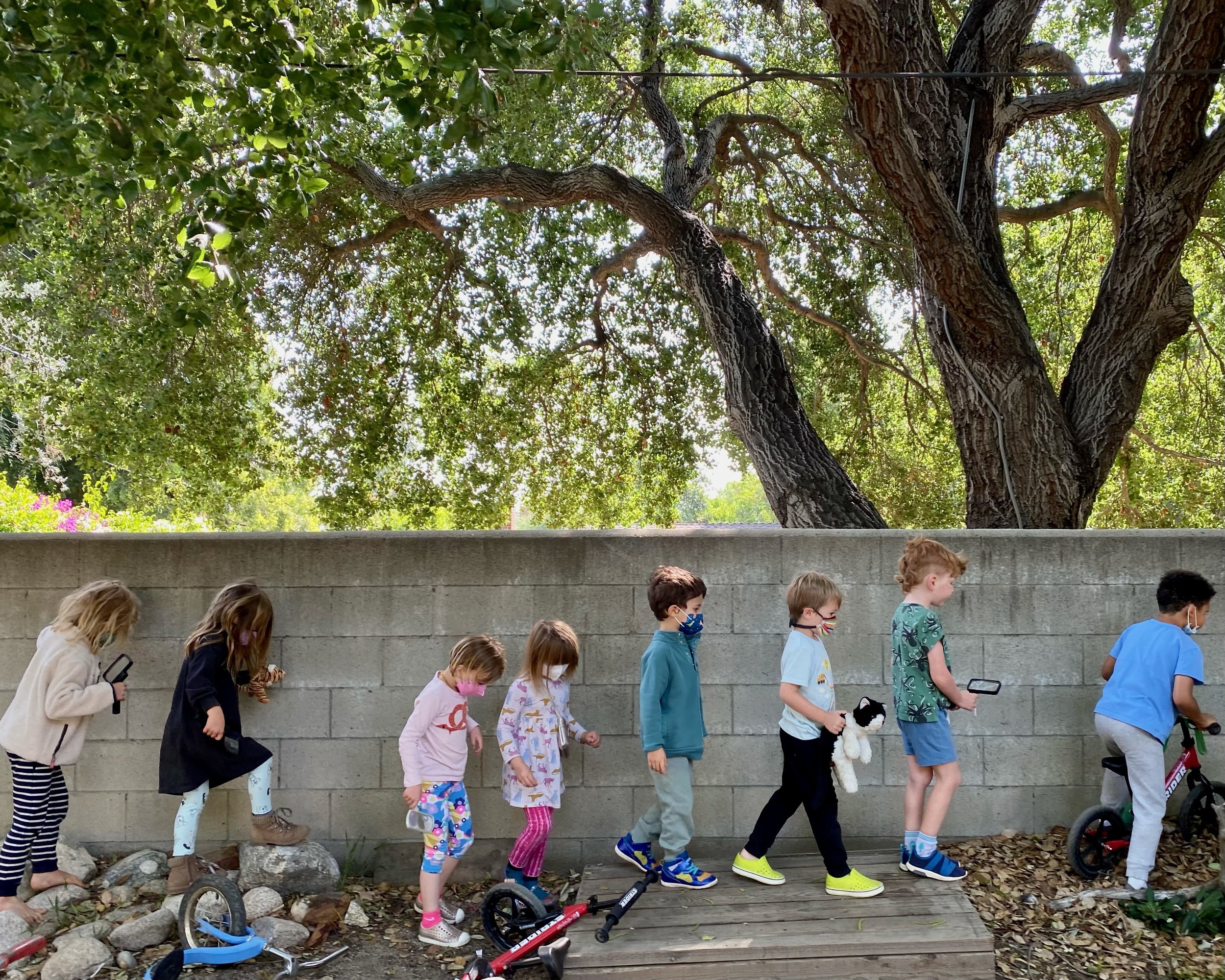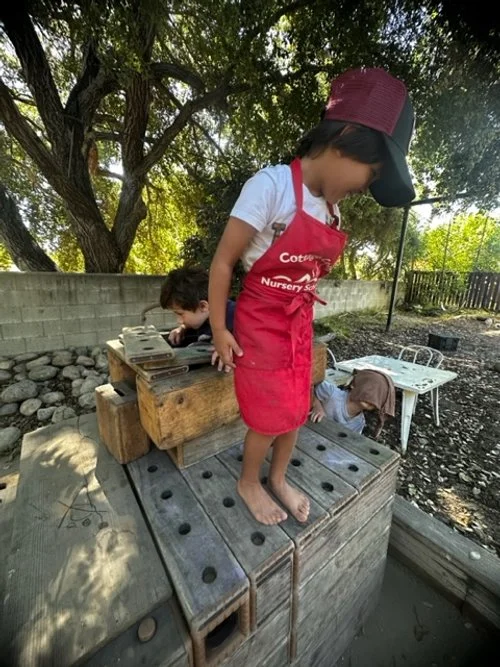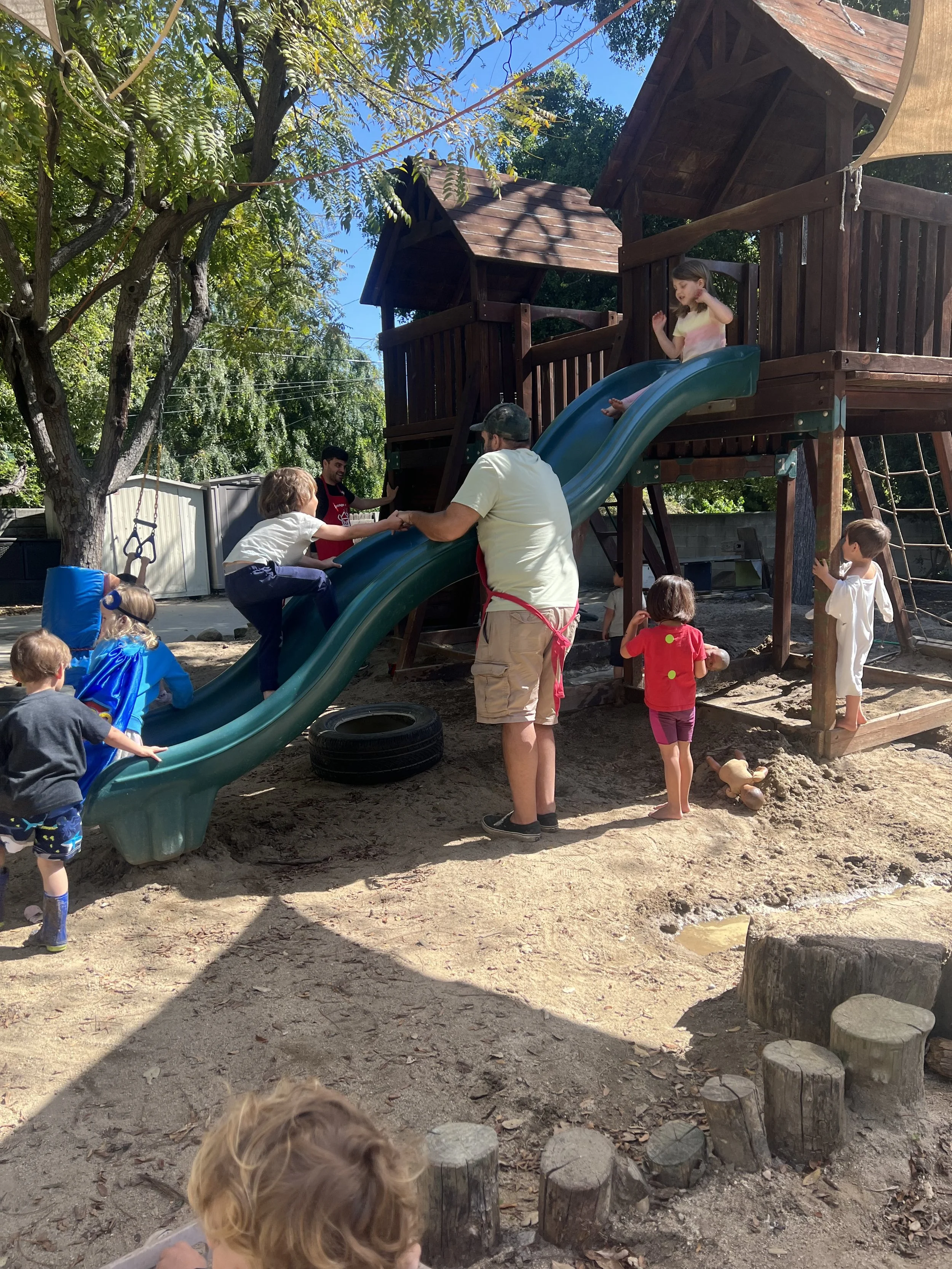Once the kids get here, even if it’s tricky sometimes, that’s when I feel actually good, because for a few hours a day, the kids here are the only thing I’m thinking about, the only important thing in my world.
Kids don’t sit a long time for end-of-year commencements, so I have written remarks for the grownups that I’ll condense for our Key Ceremonies.
Read MoreIn the last few years, I have heard a lot about embodiment. I’m not clear whether it’s my age as a woman in my late forties, or the popularization of things like yoga and therapy, or a growing awareness of our sensory systems, or some combination, but in my life, at least, the idea has become too loud to ignore. I want to talk about how embodiment is a goal for our preschool aged children, so that they aren’t beginning their journey to being a friend to their own body in middle age.
Sometimes it works best to interrupt just as something is taking place– the equivalent of grabbing their hand to prevent them running off in a busy parking lot. And sometimes it’s far more effective to wait for a quiet moment, and circle back.
…we are so often in a hurry, with an important agenda and a timetable. During the “Tarry Time” of Cottage, we can take the opportunity to slow down and stay curious, remembering that it takes time to learn, but that freely chosen work is always the most compelling.
Read MoreFor attentive, caring adults, ostensibly supporting children’s emotional regulation, our goal is to utilize the tool of co-regulation: a set of signals between people that send the message to our nervous system that we are safe.
Read MoreThere is so much unseen work that goes into a child making a painting like this, and it cannot be skipped.
In the span of the last generation or so, we have removed most of the opportunities our kids have had for free play. We seem to have convinced ourselves that enrichment classes would be like play, but better, because a grown-up is in charge of it. It won’t get too chaotic, there won’t be so much arguing. Everyone will line up and do the thing when the adult in charge tells them to do it, and they will be getting exercise, and they will be around other children, and they will burn off some of that infernal energy that has them resist bedtime and makes them climb the furniture like monkeys.
Without the courage to be vulnerable with each other, there’s no room for compassion and for connection, which is the best part of being human.
Every child deserves a childhood to the best of our abilities to give them one. I am observing that “fairness” is really a distraction of our thoughts and our best parenting intentions rather than a concept that any of us could actually define in any conclusive way; here is your permission to question it.-Wallace
Read MoreI was having shower thoughts this morning about how some of us here use "Cottage” as a verb. I am not personally in this habit but I understand it, and agree that it is somehow an action as well as a school, and a community. And I was thinking about how important our shared language is in the way we do the thing we do when we are Cottage-ing.
Why would a child do those things? What would have a child do something they absolutely knew was dangerous to other people’s bodies, and would definitely result in adults being all over them, stopping them from doing anything else?
Read MoreA second Summer of weekly stories from the yards.
Read MoreThis week, a teacher told us at our teacher debrief about a difficult situation she had had with a child, and I loved the words she used, so perfectly Cottage.
Read MoreWe need each other, and our acknowledgement that we need each other and that other people need us, here, is part of what makes Cottage feel so magical. It’s a view straight into the fabric of the universe, the fundamental truths of existence that we are all interconnected, that we are a part of each other.
Our neurodiverse staff at Cottage wanted to address Autism Acceptance month, and it took us a while to collectively generate what we wanted you to know. We chose to tell you in three voices, because there are many ways to be neurodivergent and we wanted to be able to show a fuller picture. Here we are:
Read MoreThen, sitting there off to the side of some children making small, calculated jumps from a 2’ raised platform onto soft mats, the reader asked me how old those children were. I replied that I thought they were 4 or 5. He was silent. So I asked him how old he thought kids should be to be able to play that game, and he said six and a half. He told me that they should be wearing strong helmets. I said, “that game looks dangerous to you. I think it’s safe. I see that they aren’t climbing up very high, and they are landing on soft mats”. And then I jumped myself to show him, although I am 45 and I wasn’t wearing a helmet. And I was safe.
This Summer I got to be in the classroom for Camp almost the whole time, and it left me full of stories to tell about what the kids were working on, and what I was learning and remembering alongside them. This is the collected stories I told in my weekly emails to parents this Summer
Read MoreI hope these book stories help you see how the act of reading in our classroom is a responsive practice that is about a conversation, a dance, and not a static, silent, teacher-directed activity. Reading in an emergent curriculum class is about listening to the kids as much as to the books!
Read More
